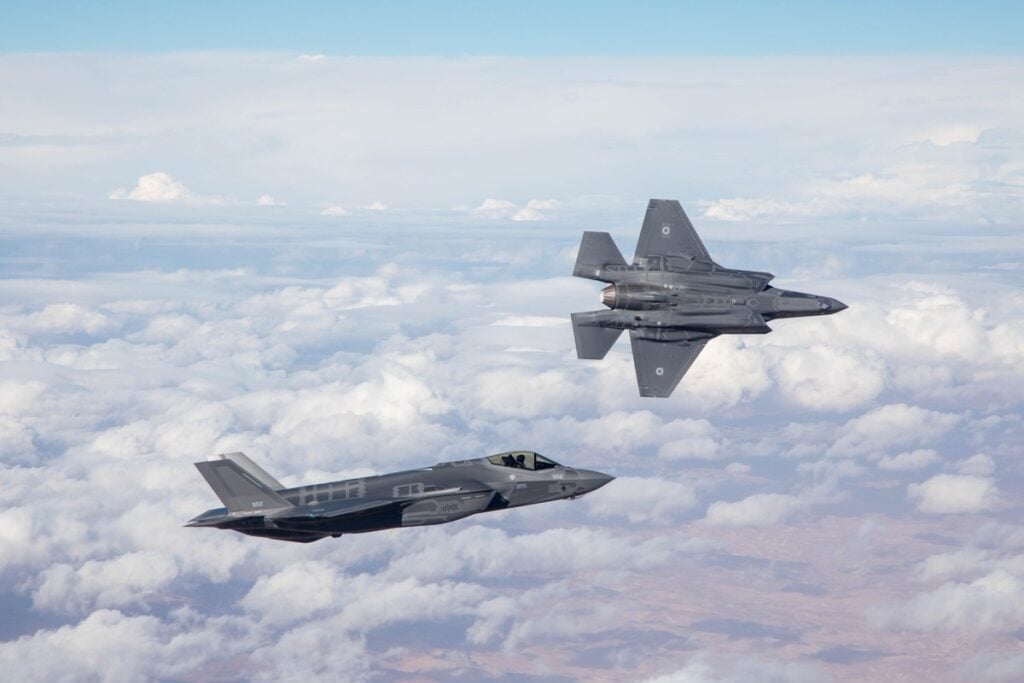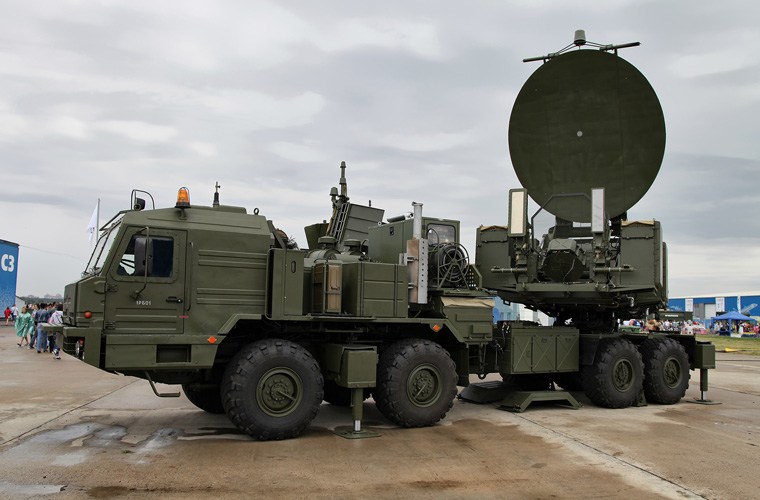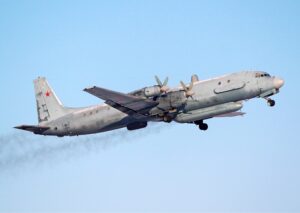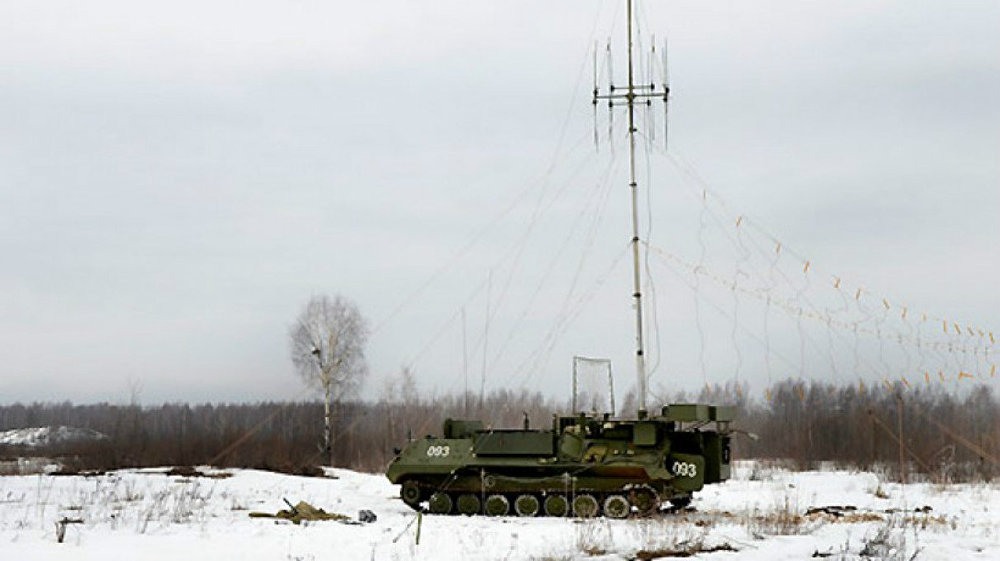ΣΧΟΛΙΟ ΙΣΤΟΛΟΓΙΟΥ : Το να γίνει παρεμβολή στα GPS, είναι πανεύκολο. Δεν νομίζω όμως πως οι Ρώσοι έκαναν παρεμβολές στο Ισραήλ. Μάλλον οι Εβραίοι μας είδανε αλευρωμένους και μας περάσανε για μυλωνάδες. Μην ακούτε κανέναν...ο Αμερικανικός στρατός τραγουδάει Baby Shark .....και οι Ρώσσοι τραγουδούν barbie girl....κατά τα άλλα θα...πολεμήσουν μεταξύ τους.!!! χαχαχαχα The war of songs has started.....
USA: We have the strongest military.
Russia: Hold my beer.

Now, the situation is rife with rumor, with the Israeli government avoiding any official statement and still investigating other sources. But if Russia is indeed disrupting a friendly nation’s GPS by accident, why haven’t they stopped?
The answer may lie in the limits of Russian electronic warfare, which — while far more potent than US military EW — still relies on raw power more than precise targeting. It may also show the weakness of the warm relationship Prime Minister Benjamin Netanyahu has cultivated with Vladimir Putin, which could run aground on Russia’s increasing support for Iran.
Yesterday, the Israeli Defense Forces-sponsored but editorially independent radio station, Galei Tzahal, reported that Russia is behind the jamming. Russian officials and state-friendly media
immediately denied this accusation as “fake news.” The Israeli defense
ministry has not commented, and Israeli aviation officials have said
there is no evidence of a Russian link.
So what is the cause? “I don’t know,” an IAA spokesman said.
Why Russia Is Suspect
Earlier this week, first the International Federation of Air Line Pilots’ Associations (IFALPA) and then Israeli Airports Authority announced many flights — not all — have lost the GPS satellite signal while flying into or out of Ben Gurion International. But there has been no risk to passengers, the IAA assured the public, because the affected aircraft simply switched to backup systems. (Specifically, they’re now homing in on radio signals from ground stations at the airport, the Instrument Landing System or ILS).
Intriguingly, ground-based GPS systems are unaffected. That makes the jamming of aviation GPS suspiciously specific — another sign that it’s not a simple glitch but some kind of electronic weapon. And the Russians have invested heavily in high-powered spoofing systems that send out false GPS signals up to 500 times stronger than the real ones, leading civilian navigators miles astray. (EW-resistant GPS is now an urgent investment for the US military). Russia has reportedly used GPS jamming in Scandinavia, Ukraine — and Syria.

Informed Israeli sources tell Breaking Defense the likely source is either Russian forces inside western Syria or warships in the Eastern Mediterranean. That fits with reports Russia is carrying on an extensive electronic warfare campaign in Syria.
The Russians’ ostensible objective is simply to protect their own
forces from constant attacks by terrorist drones, which rely on radio
control and GPS. But they are also taking the opportunity to test a host
of new technologies in real-world operations, especially against the
latest Western systems like the new F-35 Joint Strike Fighter– which
Israel has used to strike Iranian-affiliated targets in Syria — as well as ballistic missile defenses and classified drones. And both US and UK commanders have said the Russians are actively and deliberately jamming their aircraft, because the West is supporting factions hostile to the pro-Moscow Assad regime.
Through most of the Syrian civil war, the Russians have been both allies and rivals of Iran and its Shiite militia proxies. While both Moscow and Tehran support Assad and his Alawite base (an offshoot of Shiism) both the Sunni Muslim extremists of ISIS and the US-backed, Kurdish-dominated Syrian Democratic Forces, neither is eager for the other to be the preeminent influence in post-war Syria.
But by escalating tensions with the US, Russia’s primary rival, Iran has made itself a more attractive partner for Putin. In fact, during this week’s historic visit of the Russian national security advisor to Israel, where Nikolay Patrushev met with both his US counterpart John Bolton and the Israelis, the Russian official publicly spoke out in favor of Iran and its role in Syria.
It’s hard to imagine a more unnerving statement for his Israeli hosts to hear. And Russia’s embrace of Iran is all the more disconcerting because the Russian relationship with Israel had been remarkably warm.
Prime Minister Netanyahu, like many other right-wing populists in both Europe and the US, had gone out of his way to cultivate Putin, who after all owes much of his strong-man image to his brutal crackdown on Islamic extremists in Chechnya. Netanyahu stood with Putin on the reviewing stand in Moscow during last year’s annual Victory Day military parade; the two men even joined part of the march together. This spring, amidst corruption investigations and a bitterly contested election, Netanyahu made a surprise visit to Moscow where he touted the relationship for preventing friction over Israeli strikes on Iranian targets in Syria and helping recover the remains of a slain IDF soldier. None of this is typical behavior for the leader of a major US ally, let alone the largest recipient of US aid since 1945.
So for Russia to distance itself from Israel is at least disappointing, and sustained Russian interference with Israeli GPS — side effect or not — is puzzling.

Reading The Electronic Tea Leaves
Russia has no strategic reason to attack Israel, the former head of Israeli military intelligence, Maj. Gen. (ret.) Amos Yadlin, told Breaking Defense. “GPS has military uses, such as precision bombs,” he said. (GPS guidance is now standard on US and allied smart weapons).”The Russians may have used electronic warfare…. where they are deployed in Syria, and this is may be a side effect.”
“We have very good communication with the Russians about Syria and I believe that the same mechanism can be used to clarify things,” Yadlin said.

But in that case, after three weeks of intermittent interference, why
can’t the Israeli government convince the Russians to turn it off, or
at least adjust their frequencies and power levels to avoid interfering
with civil flights in Israeli airspace? There’s no satisfactory answer
as of yet, but it’s possible that it would be difficult for the Russians
to fine-tune their jamming and spoofing this way, and they may
sufficiently irritated with Israel that they don’t want to bother.
“The Russians claim to have a powerful ‘echeloned defense’ in Syria that includes electronic warfare, probably the Krasukha system,” a truck-mounted heavy jammer, said Samuel Bendett, an expert on Russian military technology at CNA. “It has a good range — though Israeli airports are located at a decent distance away.”
Krasukha can interfere with signals at a range of over 150 miles, with the yet more potent Murmansk-BN has a reported range of over 3,000 miles. In fact, it’s a puzzle why Jordan’s national airport isn’t also reporting interference, since it’s actually closer to the Russian bases in Syria than Ben Gurion International is.
Other experts, however, thought a ground-based jammer was less likely to be the culprit than a EW aircraft. Since ground systems tend to stay in one place and keep transmitting, they’d cause continuous disruption to Israeli GPS, not the intermittent interference reported at Ben Gurion. An airborne source, by contrast — even a long-endurance drone — can’t stay aloft indefinitely, which fits with how the jamming comes and goes.
Another puzzle is why the interference is only showing up in the last month, when the Russians have been using high-powered jammers in the region since at least early 2018. “Russian assets have been in Syria for a while now,” Bendett said, “so maybe the spillover effect has to do with them dialing up their EW capabilities to counter the persistent threat of [insurgent drones] that attack their bases on a regular basis.”

So maybe the Russians have only recently pumped up the volume high
enough to deafen Israeli electronics. But can’t they fine-tune the
signal? “That’s a good question,” Bendett said. “Russian systems today
are supposed to distinguish between friend or foe,” he said, although
from a Western standpoint they still rely more on raw power than precise
targeting of wavelengths used by the enemy.
There is another possibility, too, Bendett warned. “We also should not discount a disgruntled attitude in some Russian military circles over the recent downing of their naval ISR [intelligence, surveillance, and reconnaissance] plane,” he said, killing all 15 Russian servicemembers aboard the Il-20 last year.
Now, it was a Syrian anti-aircraft system that shot the Russian plane down — but the Syrians were trying to target Israeli air raiders in the area. A Russian Defense Ministry spokesman initially blamed Israel for not giving the Russian plane enough warning to get clear of the battle and even deliberately confusing the radar tracks, effectively using the Il-20 as a decoy. Though Putin later absolved the Israelis, it’s entirely possible that some Russian commanders in Syria bear a grudge.
“Maybe,” Bendett said, “this is a reminder of sorts that, despite a good relationship between Moscow and Tel Aviv, some anger remains?”
If it’s just a few Russian officers who are willing to trample Israeli wavelengths, that’s a minor irritant in relations, especially since backup navigation measures mean no aircraft are actually in danger. If Russia has decided to support Iran and help defend its Syrian outposts from Israeli strikes, that’s a much more serious problem.
πηγή
USA: We have the strongest military.
Russia: Hold my beer.

The answer may lie in the limits of Russian electronic warfare, which -- while far more potent than US military EW -- still relies on raw power more than precise targeting. It may also show the weakness of the warm relationship Prime Minister Benjamin Netanyahu has cultivated with Vladimir Putin, which could run aground on Russia's increasing support for Iran.
TEL AVIV: Israeli sources are increasingly convinced that three weeks of GPS disruptions for civilian flights are a side effect of Russian jamming and spoofing in Syria, where Moscow is trying to interfere with both Western airplanes — including cutting-edge stealthy F-22s and F-35s — and improvised terrorist drones.Now, the situation is rife with rumor, with the Israeli government avoiding any official statement and still investigating other sources. But if Russia is indeed disrupting a friendly nation’s GPS by accident, why haven’t they stopped?
The answer may lie in the limits of Russian electronic warfare, which — while far more potent than US military EW — still relies on raw power more than precise targeting. It may also show the weakness of the warm relationship Prime Minister Benjamin Netanyahu has cultivated with Vladimir Putin, which could run aground on Russia’s increasing support for Iran.
So what is the cause? “I don’t know,” an IAA spokesman said.
Why Russia Is Suspect
Earlier this week, first the International Federation of Air Line Pilots’ Associations (IFALPA) and then Israeli Airports Authority announced many flights — not all — have lost the GPS satellite signal while flying into or out of Ben Gurion International. But there has been no risk to passengers, the IAA assured the public, because the affected aircraft simply switched to backup systems. (Specifically, they’re now homing in on radio signals from ground stations at the airport, the Instrument Landing System or ILS).
Intriguingly, ground-based GPS systems are unaffected. That makes the jamming of aviation GPS suspiciously specific — another sign that it’s not a simple glitch but some kind of electronic weapon. And the Russians have invested heavily in high-powered spoofing systems that send out false GPS signals up to 500 times stronger than the real ones, leading civilian navigators miles astray. (EW-resistant GPS is now an urgent investment for the US military). Russia has reportedly used GPS jamming in Scandinavia, Ukraine — and Syria.

F-22 refuels during attacks on Syria and ISIL
Recommended
Roper Calls For New Air Force Planes Every Five Years; Recalls X Plane Days
PARIS AIR SHOW: During an unusual public appearance in the US Chalet,
Will Roper called for a large expansion in the number of companies
doing business with the Air Force so more new planes can be built — and
be built much more quickly as was done in the 1950s and ’60s when a new…
Through most of the Syrian civil war, the Russians have been both allies and rivals of Iran and its Shiite militia proxies. While both Moscow and Tehran support Assad and his Alawite base (an offshoot of Shiism) both the Sunni Muslim extremists of ISIS and the US-backed, Kurdish-dominated Syrian Democratic Forces, neither is eager for the other to be the preeminent influence in post-war Syria.
But by escalating tensions with the US, Russia’s primary rival, Iran has made itself a more attractive partner for Putin. In fact, during this week’s historic visit of the Russian national security advisor to Israel, where Nikolay Patrushev met with both his US counterpart John Bolton and the Israelis, the Russian official publicly spoke out in favor of Iran and its role in Syria.
It’s hard to imagine a more unnerving statement for his Israeli hosts to hear. And Russia’s embrace of Iran is all the more disconcerting because the Russian relationship with Israel had been remarkably warm.
Prime Minister Netanyahu, like many other right-wing populists in both Europe and the US, had gone out of his way to cultivate Putin, who after all owes much of his strong-man image to his brutal crackdown on Islamic extremists in Chechnya. Netanyahu stood with Putin on the reviewing stand in Moscow during last year’s annual Victory Day military parade; the two men even joined part of the march together. This spring, amidst corruption investigations and a bitterly contested election, Netanyahu made a surprise visit to Moscow where he touted the relationship for preventing friction over Israeli strikes on Iranian targets in Syria and helping recover the remains of a slain IDF soldier. None of this is typical behavior for the leader of a major US ally, let alone the largest recipient of US aid since 1945.
So for Russia to distance itself from Israel is at least disappointing, and sustained Russian interference with Israeli GPS — side effect or not — is puzzling.

Russian Krasukha-2 electronic warfare system with dish deployed. The system was reportedly used in Syria.
Russia has no strategic reason to attack Israel, the former head of Israeli military intelligence, Maj. Gen. (ret.) Amos Yadlin, told Breaking Defense. “GPS has military uses, such as precision bombs,” he said. (GPS guidance is now standard on US and allied smart weapons).”The Russians may have used electronic warfare…. where they are deployed in Syria, and this is may be a side effect.”
“We have very good communication with the Russians about Syria and I believe that the same mechanism can be used to clarify things,” Yadlin said.

Retired IDF Maj. Gen. Amos Yadlin
“The Russians claim to have a powerful ‘echeloned defense’ in Syria that includes electronic warfare, probably the Krasukha system,” a truck-mounted heavy jammer, said Samuel Bendett, an expert on Russian military technology at CNA. “It has a good range — though Israeli airports are located at a decent distance away.”
Krasukha can interfere with signals at a range of over 150 miles, with the yet more potent Murmansk-BN has a reported range of over 3,000 miles. In fact, it’s a puzzle why Jordan’s national airport isn’t also reporting interference, since it’s actually closer to the Russian bases in Syria than Ben Gurion International is.
Other experts, however, thought a ground-based jammer was less likely to be the culprit than a EW aircraft. Since ground systems tend to stay in one place and keep transmitting, they’d cause continuous disruption to Israeli GPS, not the intermittent interference reported at Ben Gurion. An airborne source, by contrast — even a long-endurance drone — can’t stay aloft indefinitely, which fits with how the jamming comes and goes.
Another puzzle is why the interference is only showing up in the last month, when the Russians have been using high-powered jammers in the region since at least early 2018. “Russian assets have been in Syria for a while now,” Bendett said, “so maybe the spillover effect has to do with them dialing up their EW capabilities to counter the persistent threat of [insurgent drones] that attack their bases on a regular basis.”

Russia Air Force Il-20
There is another possibility, too, Bendett warned. “We also should not discount a disgruntled attitude in some Russian military circles over the recent downing of their naval ISR [intelligence, surveillance, and reconnaissance] plane,” he said, killing all 15 Russian servicemembers aboard the Il-20 last year.
Now, it was a Syrian anti-aircraft system that shot the Russian plane down — but the Syrians were trying to target Israeli air raiders in the area. A Russian Defense Ministry spokesman initially blamed Israel for not giving the Russian plane enough warning to get clear of the battle and even deliberately confusing the radar tracks, effectively using the Il-20 as a decoy. Though Putin later absolved the Israelis, it’s entirely possible that some Russian commanders in Syria bear a grudge.
“Maybe,” Bendett said, “this is a reminder of sorts that, despite a good relationship between Moscow and Tel Aviv, some anger remains?”
If it’s just a few Russian officers who are willing to trample Israeli wavelengths, that’s a minor irritant in relations, especially since backup navigation measures mean no aircraft are actually in danger. If Russia has decided to support Iran and help defend its Syrian outposts from Israeli strikes, that’s a much more serious problem.
πηγή


Δεν υπάρχουν σχόλια:
Δημοσίευση σχολίου